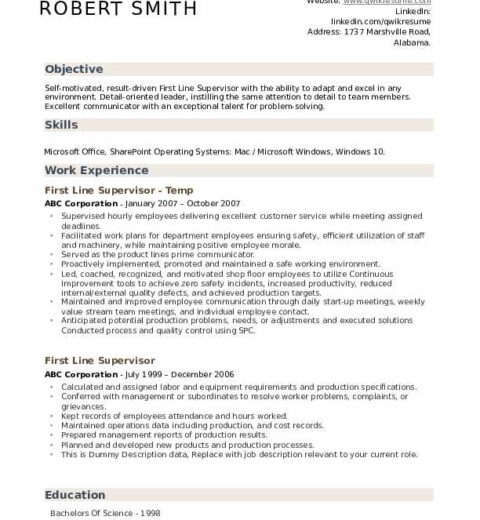The University of Fairfax (UF) has carved a niche for itself in the realm of higher education, attracting a diverse cohort of students eager to advance their academic and career aspirations. However, every applicant faces the daunting journey of the admissions process, navigating a sea of requirements and expectations. A prevalent query among prospective students is, “Does UF accept resumes?” This seemingly straightforward question opens a dialogue that encompasses not only procedural nuances but also the deeper implications of what a resume signifies in the context of academic applications.
At first glance, the admissions process may appear to hinge predominantly on quantitative metrics—GPA, standardized test scores, and essential application forms. Yet, the qualitative aspects of a candidate’s profile are equally pivotal. This is where the concept of a resume—an organized summation of one’s achievements, experiences, and skills—comes into play. For many institutions, including UF, the acceptance of resumes is contingent upon several factors that warrant exploration.
UF does indeed allow applicants to submit resumes as part of their application materials. However, this avenue is not universally mandated. Resumes typically serve as supplementary documents rather than core components of the application process. The critical takeaway here is that while a resume is welcomed, it is not a prerequisite for admissions. Applicants must strategically assess their own experiences and determine whether providing a resume would enhance their application or merely reiterate details already conveyed in other sections of the application.
A fundamental reason for submitting a resume is the opportunity to present exceptional experiences that may not fit neatly into a standard application format. Many applicants possess a rich tapestry of experiences, such as internships, volunteer work, leadership roles, or unique extracurricular activities. A resume offers an expansive canvas to illustrate these facets more vividly.
Moreover, a resume functions as a narrative tool, allowing admissions committees to glean insights into the applicant’s character and ambitions. It reveals not just what applicants have accomplished, but how they view their own paths. In a world inundated with data and statistics, the personal story articulated through a resume can resonate powerfully with evaluators. This narrative dimension is where the fascination lies; it presents a deeper understanding of an individual—a glimpse into their motivations, aspirations, and potential contributions to the university community.
Another consideration is the evolving landscape of higher education and employer expectations. As educational institutions place increasing emphasis on holistic admissions processes, candidates are encouraged to showcase the breadth of their capabilities. The inclusion of a resume can signify a proactive approach to presenting oneself. It demonstrates initiative and foresight—qualities that are often highly regarded by admissions committees. In many respects, the act of submitting a well-crafted resume can convey an applicant’s commitment to presenting themselves authentically amidst a competitive applicant pool.
However, there are nuances to consider when engaging in this practice. A resume should not recapitulate one’s application or offer redundant information. Instead, it should complement the application by including relevant accomplishments and experiences that showcase the applicant’s fit for UF. Candidates should be discerning. Highlighting qualifications that are directly relevant to their chosen field of study, while articulating specific skills—such as problem-solving, teamwork, or leadership—can bolster their application significantly.
Moreover, understanding the audience is crucial. Admissions officers at UF are seasoned professionals who are adept at discerning the narratives presented before them. A perfunctory resume, one that lacks focus or is poorly organized, may do more harm than good. Therefore, meticulous attention to detail is imperative. Candidates should ensure that their resumes are clear, concise, and devoid of extraneous information, focusing on relevance and impact.
In addition to traditional resumes, candidates may explore various formats—such as infographic resumes or digital portfolios—aligned with their field of study. The acceptance of these alternative formats, however, may depend on the specific department or program requirements at UF. Applicants are encouraged to verify whether any particular guidelines exist regarding the format and content of submitted resumes.
As with any aspect of the admissions process, transparency is key. It is advisable for applicants to consult UF’s official admissions resources or contact the admissions office directly with any questions or clarifications regarding the inclusion of a resume. This proactive approach reflects well on applicants and underscores their earnestness in navigating the application landscape.
In the final analysis, while the question of whether UF accepts resumes is straightforward, its implications traverse a broader spectrum of academic presentation and personal branding. The opportunity to submit a resume is not merely an optional embellishment to the application; it can be a strategic tool in articulating unique experiences and aspirations. Understanding when and how to utilize this tool effectively can foster a compelling application that distinguishes an applicant in the competitive academic arena.
Thus, as prospective students embark on their journey through the admissions process at the University of Fairfax, one thing remains paramount: their aim should not only be to meet the minimum requirements but to leverage every opportunity available—including the submission of a resume—to articulate a distinctive narrative that reflects their unique potential and contributions to the university community.



